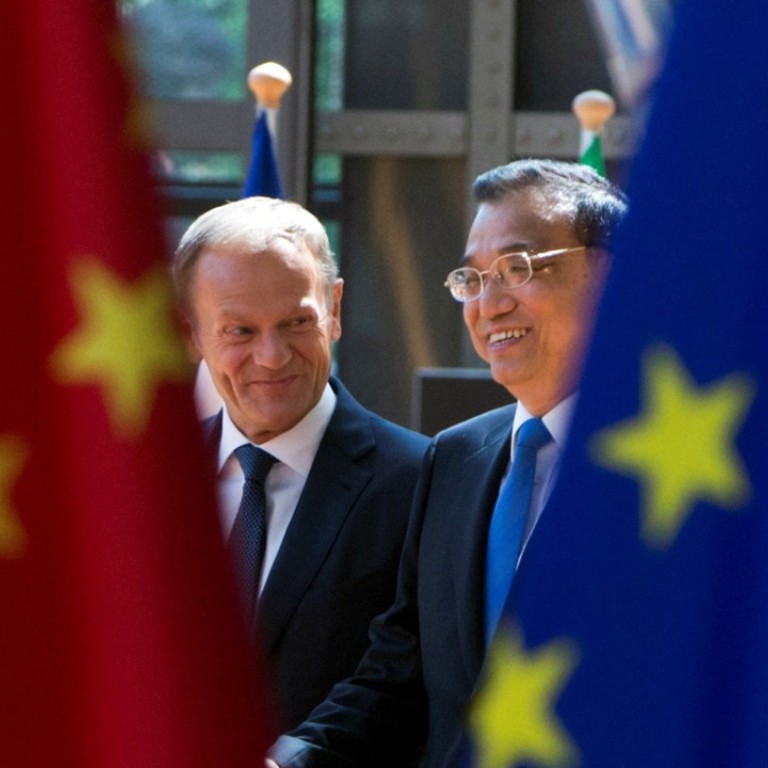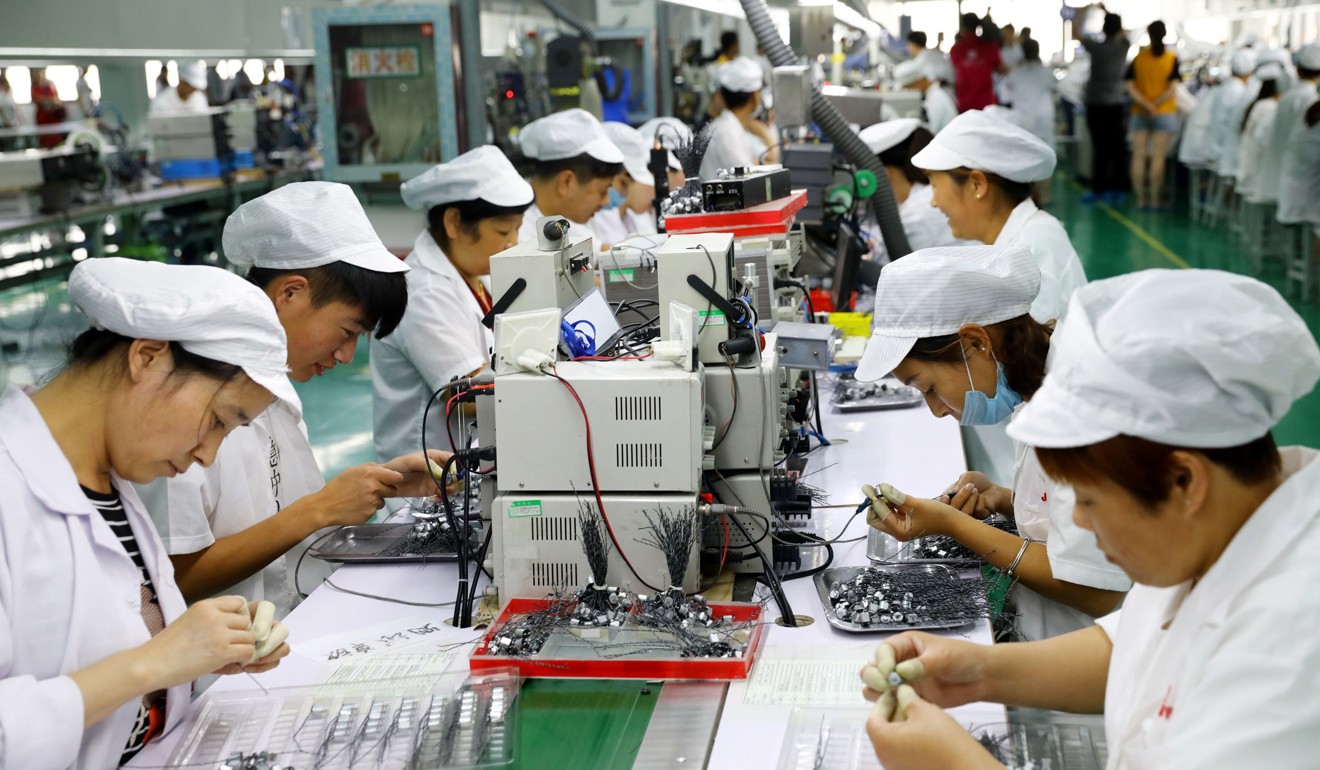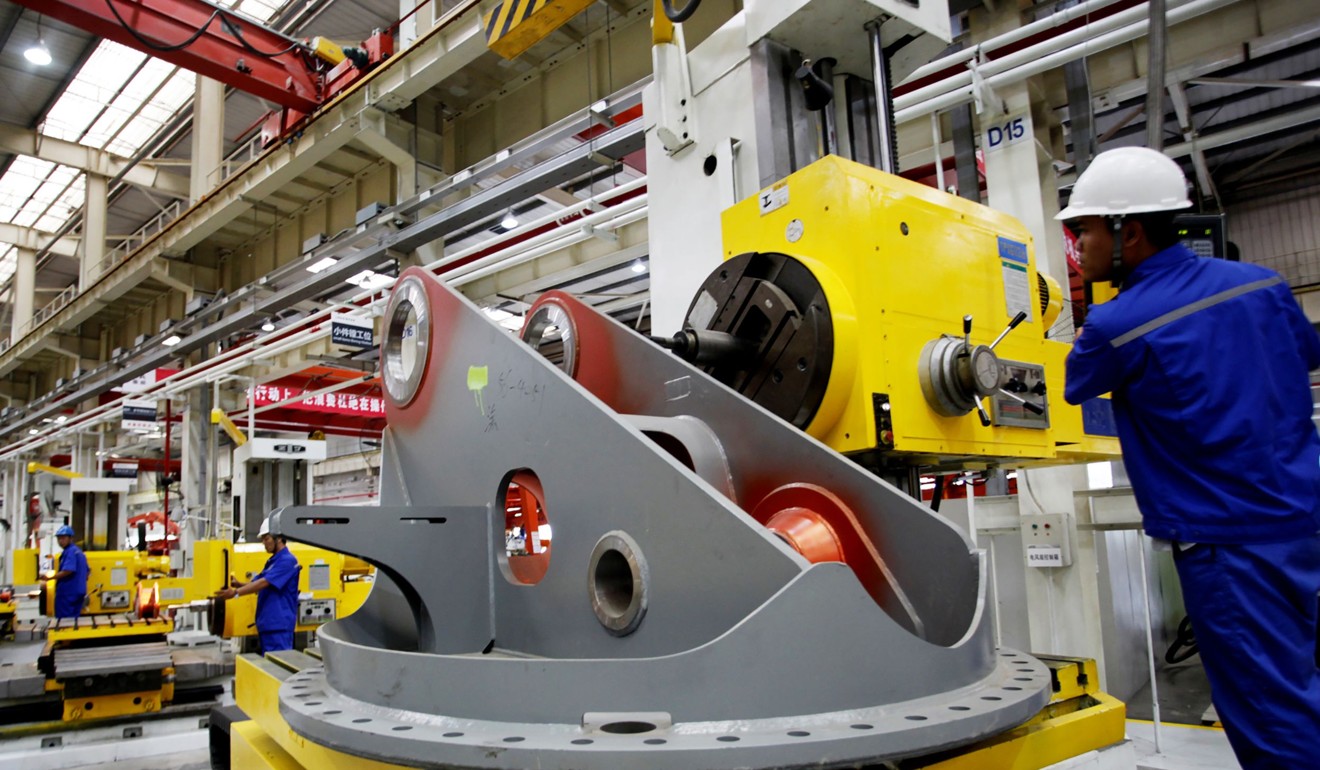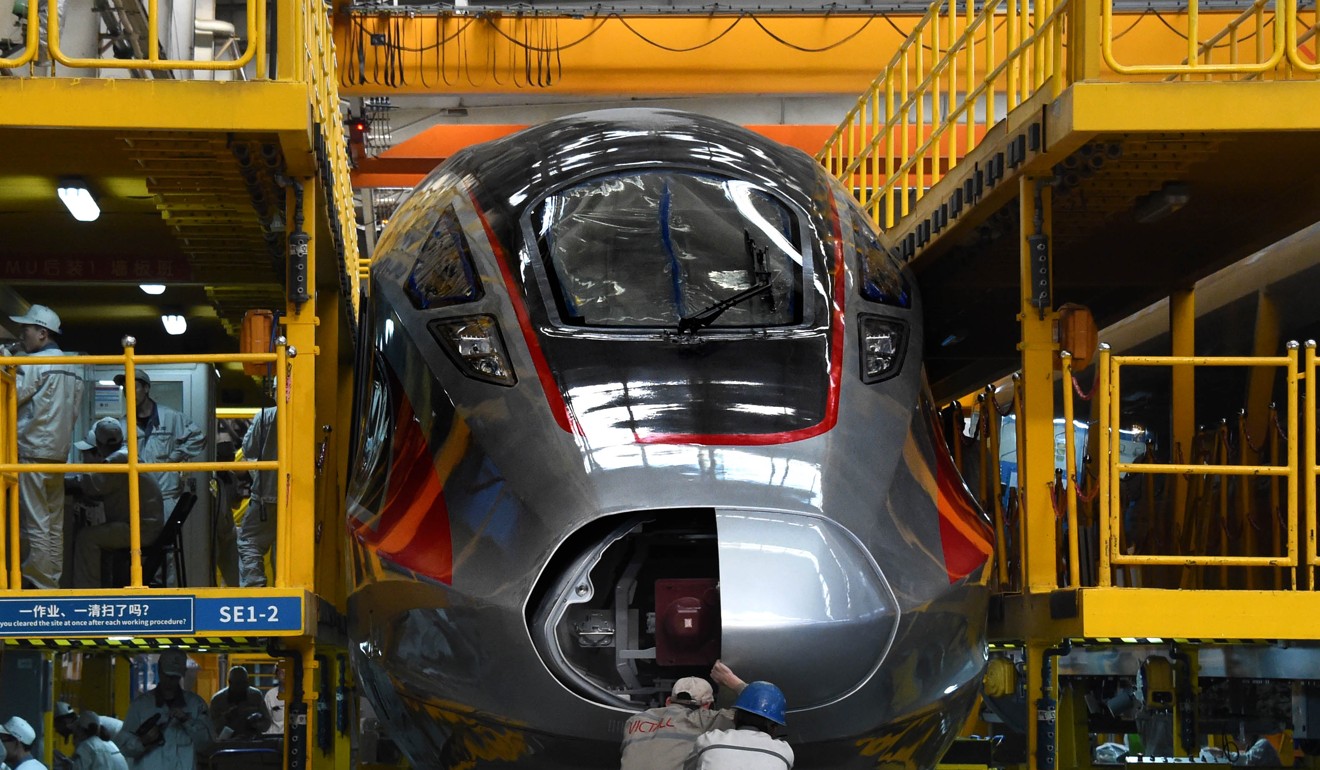
European firms race to rejig supply chains as US-China trade war rumbles
Leading business group calls for a more level field for foreign players, warning that failure to act now will lead to even greater tensions
European companies in China are scrambling to rejig supply chains to minimise fallout from the Sino-US trade war, according to a leading international business group.
Releasing a report on Tuesday on China’s opening up in the last 18 months since Chinese President Xi Jinping endorsed globalisation in a landmark speech, the European Union Chamber of Commerce in China also called on Beijing to create a more level investment field for foreign players.
Chamber president Mats Harborn said member companies were adjusting supply chains around the world to minimise the impact of US tariffs imposed on US$34 billion worth of Chinese goods since Friday. China responded with similar duties on a range of US goods.
Harborn said one company spent last month setting up a new factory in the United States to enable assembly in the US instead of exporting from China.
He also said some European companies were being “awarded” contracts in China at the expense of their US competitors.
“But that is not the way we’d like to get contracts. We want open and fair competition,” Harborn said.
China’s Ministry of Commerce has said that Beijing will help foreign companies in China reduce the effects of the trade row on their business.
But the chamber said the Chinese leadership needed to focus more on reform and opening up, and should send a clear signal in favour of equal market access for foreign companies.
It said foreign companies in China had been stymied by the dominance of state-owned enterprises, mandatory technology transfers to Chinese partners, a flawed regulatory framework and an overall lack of equal treatment for foreign investors.
“Failure to act now will only lead to an escalation of the significant tensions that are building in the global economic system,” the chamber said in the report.
Harborn also said China should not let trade war “emotions” get in the way of reform and opening up.
The report – “18 Months Since Davos – How China’s Vision Became a Reform Imperative” – said the pace of reform in China on environmental protection, research and development and consumer goods had been much quicker in the past 18 months than at any other period since China joined the World Trade Organisation in 2001.
China and Germany band together against US, but it’s ‘tenuous’
But its progress so far had generated only limited value for foreign companies operating in the country, it said.
“For some it is simply too little, too late, for others it is that without complementary reforms the opening is negligible,” the report said.

The US has also accused China of unfair trade practices, particularly its policy of forcing foreign companies into joint ventures with Chinese firms, effectively coercing the foreign entity to transfer its technology to the domestic firm.
China weighs breaks for companies hit by US tariffs
In addition, the administration of US President Donald Trump has criticised Beijing’s “Made in China 2025” programme, a strategic industrial policy aimed at transforming China into a hi-tech powerhouse. The White House is concerned that the strategy, which identifies 10 major sectors, including robotics, aerospace and clean-energy cars, could allow Chinese companies, backed by the state, to overtake its own tech titans.

The EU and the US have filed complaints with the WTO against discriminatory intellectual property practices in China, citing unfair competition and market restrictions confronting foreign businesses.
With 2018 marking the 40th anniversary of China’s opening up to the West, the chamber said China should abandon its reliance on outdated tools such as free-trade zones and instead promote reform of state-owned firms, improving intellectual property protection and improving the overall regulatory environment.
China shouldn’t bet on Trump’s base deserting him in the trade war
China has set up 11 free-trade zones around the country since 2013 to attract foreign capital, but has had limited results so far, according to the report.
The chamber said foreign firms were “inundated” with information about free-trade zones, industrial estates and development zones that were “a colossal waste of government resources”.
Meanwhile, the foreign companies are struggling against rules that guarantee unequal access to licences, government subsidies of targeted Chinese industries, lengthy scrutiny from authorities and “frequent and unforeseeable” shifts in governmental policy, according to the report.

“It is another major source of global tension that China’s clout and overall influence in the world economy is not reflected in its degree of openness, particularly with the massive amount of outbound investment that continue to flow from China into overseas markets,” the chamber said.
It said the foreign companies’ concerns stemmed from the lack of reciprocity and the shortage of transparency behind outbound investment.
Soften criticism of Trump, Beijing orders state media
“China is already beginning to experience the consequences of its current approach, with increasingly strong pushback from its two largest trading partners,” the report said, referring to the EU and the US.
While China is keen to forge a closer bond with the EU to build support for its efforts to counter US trade sanctions, the EU has not taken sides in the dispute.
However, the EU is taking a tough stand on its demands for reciprocity and holds China responsible for its unfair technology transfers, according to the report.
“The tone of discussions on China among many in Europe has soured significantly in recent years, with the issue of the lack of trade and investment reciprocity coming to the fore,” the report said.
Many of its member companies would be caught in the crossfire resulting from any further escalation of trade tensions, it said, urging the EU and China to work together to ease the confrontation.
China approves more direct access for foreign investors seeking to trade A shares
“Precise reciprocity with immediate effect is not what is being sought, but there does need to be a clear demonstration of progress towards increased reciprocity, as well as systemic changes to China’s regulatory environment,” the report said.
“Deeper engagement and a commitment to address the concerns raised by the international business community – backed by actual results – can help turn the tide.”

